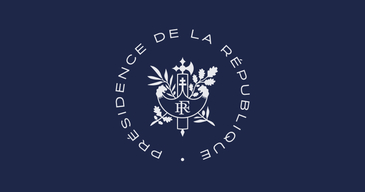Tensions on the food market are more exacerbated than ever in the context of the war in Ukraine. If unaddressed, the tensions in fertilizers access in vulnerable countries could lead to significant harvest losses which would significantly worsen the food insecurity situation at the global scale.
It is therefore with a sense of urgency that a high-level meeting was convened by France in the margins of the 77th session of the United Nations General Assembly. At this occasion, we, France, Senegal acting as chair of the African Union, the African Union Commission, the European Commission, the President of the Council of Ministers of the Lebanese Republic, in the presence of the heads of UNCTAD, the WFP, the FAO, IFAD, the World Bank Group, the IMF, the WTO and Afreximbank agreed to launch a new initiative, “Save Crops Operation”, to promote access to fertilizers and other critical inputs in vulnerable countries:
We will act immediately to ease the tensions in the markets:
In the face of price volatility, our priority is to lift unnecessary export restrictions, fight speculation and improve stock transparency. By the G20 Bali Summit, the FAO and the WTO will conduct a mapping exercise on export restrictions, market transparency through the Agricultural Market Information System (AMIS), as well as on fertilizers needs and production bottlenecks in vulnerable countries and especially on the African continent, in view of proposing concrete options to Leaders.
In order to further facilitate the movement of fertilizers, the EU recalled the existing exemptions on all agrifood products and the provision of additional guidelines to clarify the applicability of its sanction regime towards Russia. Additional outreach will be undertaken with operators in the very short term, in order to reduce possible over-compliance, including through targeted letters of comfort. We will also support the efforts of UNCTAD and the WFP to allow the movement of fertilizers and critical components for fertilizers.
We will launch an emergency fertilizer purchase mechanism for Africa.
We will build on the Africa Trade Exchange (ATEX) mechanism launched by the African Union, UNECA and Afreximbank to pool demand, reduce prices and buy African production in priority.
We will support this mechanism both on the financial side, by increasing Afreximbank’s capacities to reduce the cost of financing for vulnerable economies, including by addressing foreign currency exposures, and by providing low-cost logistical solutions in the framework of the “solidarity mechanism” launched by the World Food Program in the framework of the FARM initiative and in partnership with the private sector.
We will support the most vulnerable economies by enlarging their fiscal space to buy fertilizers, building on our SDR rechannelling strategy, as well as on the new “food shock window” under discussion within the IMF’s shareholding.
We will support production, both in the short and medium-term.
We will build on the World Bank’s $30 billion food security response for significant resources to be channelled to Africa, including for fertilizers and resilience of food systems.
In connection with the FARM initiative, the African Union and IFAD will explore a strategy to support the production and access to fertilizers by small scale producers on the African continent, both in the short and in the medium and long term.
A meeting of CEOs of fertilizer-producing companies will be convened in Paris in the run-up to the G20 Summit in Bali to scale-up production as fast as possible.
The ATEX platform will provide long-term contracts to African producers. We will explore swap agreements to ensure that long-term contracts already issued by African producers can benefit to African farmers in priority.
Finally, we call on gas producers throughout the world to take responsibility for limiting price increases and ensuring market transparency, which are essential to maintain fertilizer production capacity in all regions of the world.
Latest news
See all articles and topics-
6 January 2026 Paris Declaration - Robust Security Guarantees for a Solid and Lasting Peace in Ukraine.

-
17 February 2026 India – France Joint Statement.

-
20 January 2026 World Economic Forum 2026 in Davos.

-
18 January 2026 Statement by Denmark, Finland, France, Germany, the Netherlands, Norway, Sweden and the United Kingdom.

